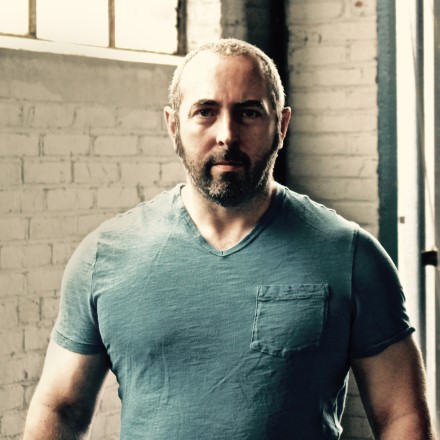Have you ever been attacked by a teenager, or group of teenagers, aged 15 and below? How did you, or would you, respond? When I was at university in the north of England, this was a relatively common occurrence that students, including myself, faced. Dealing with five to eight, aggressive twelve and/or thirteen year olds, may at first seem a laughable proposition, but numbers do count, and can do a lot to negate size and strength; as many students found out to their peril. One individual I knew of, was dragged to the ground, and had to endure a sustained stomping that saw him spend a couple of nights in the hospital (he guessed that the oldest member of the group was no more than 13). He was lucky that they weren’t armed, as dealing with multiple armed attackers when on the ground, regardless of their age, is not a good situation for any individual to be in, whether trained or untrained.
It is very easy to dismiss a child/young teen, as not being able to pose a threat to us. After all, we are older, bigger/stronger, more experienced, and occupy a higher place on the social order. Holding to these beliefs can cause us to judge a situation involving older kids and teens, as being a low threat situation, when it is actually the reverse; strength can be negated by numbers and/or weapons, and if you are dealing with an individual or group who don’t respect the social order and your age, you will be at a distinct disadvantage. The gangs of kids who used to attack students at my university, understood that they were attacking educated individuals who believed it was wrong to hit or use physical force against a minor – and who were probably in a state of denial, over kids attacking adults; they just didn’t believe such things happened. These beliefs caused them to underestimate the threat, hesitate, and not react, even when the assault began.
A threat, is a threat, is a threat, regardless of age; and where violence occurs, you should see problems rather than people. This is something that many people get confused about. I have had many, many conversations with women who attend our self-defense program, who have said that they couldn’t do this, that or the other to another person, such as biting, eye-gouging, etc. Their problem is that they are seeing their attacker/assailant as a person, not as a problem. This issue often gets compounded, when you start to introduce the idea that they are most likely to be sexually assaulted by a “friend” or someone they know. In such cases, their attacker is someone they don’t believe is capable of acting this way (like a kid attacking an adult) and is somebody who they have some form of relationship with, and who they may even have had close moments with, where they both opened up and talked about personal things and issues. It becomes very difficult in such situations to envisage using extreme violence against these individuals, however in that moment they are not the person you believed you knew, but a problem to be dealt with. Dangerous kids and teens are no different.
We often see children as being largely innocent and non-predatory. I would argue that children can be every bit as predatory as adults, and can develop these impulses very early on – adult predators are just a little more socially skilled. Many adult child molesters, start molesting as children (there have been cases of 6 year olds sexually abusing 4 years olds etc.). This may seem strange at first that a prepubescent child, as young as 6, can enjoy sexual gratification before they have really developed sexually, however even young babies can experience physical pleasure by touching their genitalia, they just don’t enjoy an emotional (sexual) pleasure from their actions. A young predatory child can get their emotional pleasure from the power and control they experience from forcing another child to perform physically pleasurable acts on them; acts they know are taboo (which in itself will elicit a certain type of pleasure). Children can and do molest and abuse others i.e. they can be predators. The gangs of kids that roamed the areas surrounding my university campus, enjoyed the power and control they had over their adult victims. They were predators who actively went out to hunt, because they enjoyed the emotional high that their acts of violence gave them.
In some ways, kids and teens can be more dangerous than adults. As we mature, we understand more about the potential consequences of our actions. We also understand that violence isn’t like the movies, and that a knife can kill, etc. Kids may not be fully aware of the physical damage and injuries that they are capable of. They may not consider that they are able to generate enough power to break a rib or a nose and/or understand what the potential consequences of doing so might be. I was attacked once by a group of said kids, one of whom was swinging a tree branch of considerable weight at my head. If it had connected, it would have resulted in a serious concussion, with any number of potential consequences (none of which the individual yielding the branch would have been aware of).
I am not saying that violent kids, don’t have reasons behind their actions and behaviors or that they are beyond redemption – I believe that social intervention and education can work – however in the moment you face a violent teen or kid, you cannot play the role of social worker, but instead need to deal with the problem you face and treat the threat/danger respectfully e.g. a young teenage mugger with a knife to your stomach demands the same respect as an adult mugger; and you may want to be aware that unlike their adult counter-part they are probably less experienced in such types of robberies, and may have more curiosity about what it’s like to actually cut or stab somebody, etc., as well as potentially wanting to gain what would be valuable bragging rights amongst his/her peers in doing so. From my own experiences of dealing with aggressive kids and teens, they emotionally crumble much quicker than adults, when they see a true display of aggression, and experience a shot of real pain – however you have to be mentally prepared and willing to do this. When violence erupts it is about problems, not people; the people part is dealt with afterwards.
Share:

Gershon Ben Keren
2.8K FollowersGershon Ben Keren, is a criminologist, security consultant and Krav Maga Instructor (5th Degree Black Belt) who completed his instructor training in Israel. He has written three books on Krav Maga and was a 2010 inductee into the Museum of Israeli Martial Arts.
Click here to learn more.
